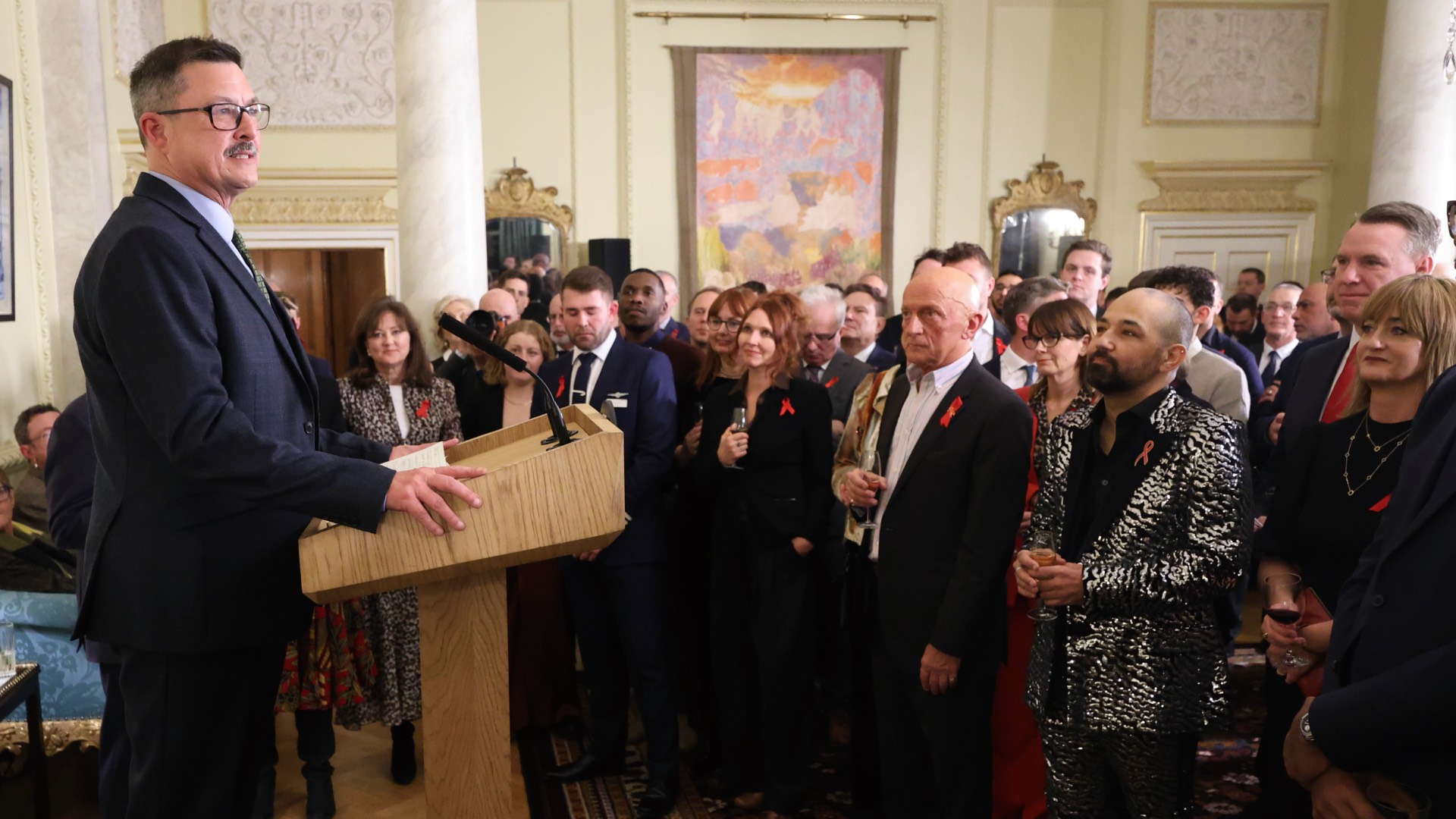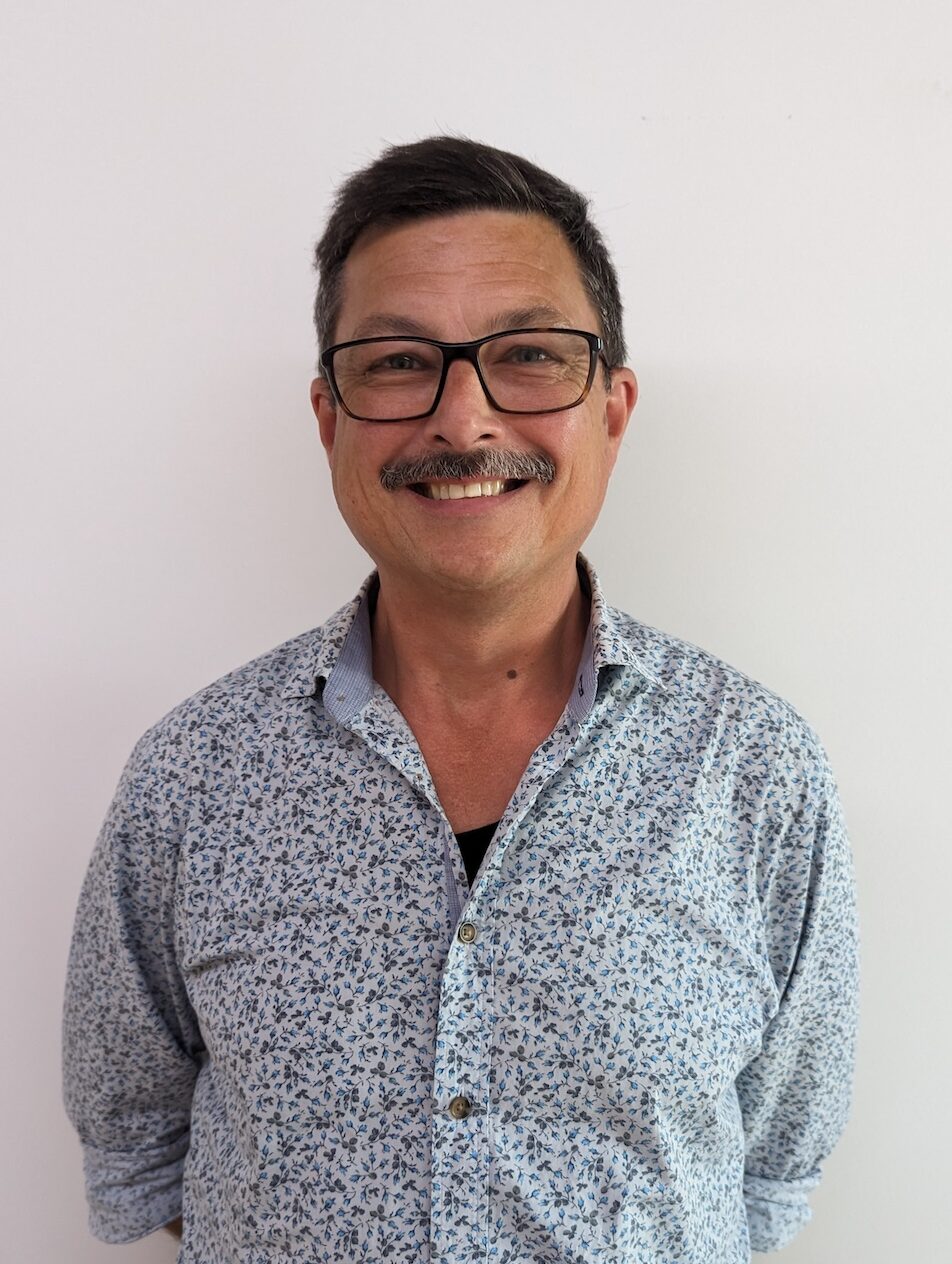CEO of National AIDS Trust on activism, progress and reflections on LGBT+ History Month 2025
“If you think a right is secure, think again,” writes NAT's Robbie Currie. “If you believe someone else will fight for it, ask yourself: why not me?”

Activism has always been at the heart of LGBT+ progress. It’s not just an abstract concept; it’s a lifeline for many in our community. This LGBT+ History Month, as we reflect on the theme of ‘Activism and Social Change,’ we are reminded that rights are not handed to us; they are fought for, won, and must be fiercely defended.
My own journey into activism began early. As a teenager in the 1980s, I found myself drawn to protests and demonstrations, marching for nuclear disarmament before fully understanding that my own identity as a young gay man would become central to my activism. I grew up in a time when being gay was either invisible, unacknowledged or presented as a caricature on television. You knew you were different, but there were few roadmaps for what that meant.
The emergence of the HIV epidemic made those questions urgent. I was barely out of my teens when I began volunteering at the London Lighthouse, a hospice and centre for people with HIV and AIDS. I met people at the sharp edge of government neglect, people who were vilified, ignored, and left to die in a climate of stigma and misinformation. The courage of those who fought against that indifference shaped the course of history. They forced a society that was content to look away to finally pay attention.

Decades later, we’ve seen extraordinary progress. The equalisation of the age of consent, the repeal of Section 28, marriage equality, the legal recognition of gender identity – each victory a testament to the power of activism. But history teaches us that progress is never guaranteed. Rights that feel secure can be stripped away, and hard-won freedoms can erode if we’re not vigilant.
Look at the United States today, where LGBT+ rights once thought untouchable are under renewed attack. The rollback of reproductive freedoms, the targeting of trans communities, and the banning of books that acknowledge our existence are chilling reminders that equality is never inevitable. In the UK, too, trans people are being targeted by the same kind of hatred and discrimination and that gay men endured in the 1980s. It is a deeply familiar tactic, creating a culture of fear, and framing a marginalised group as a threat, and using that as justification for rolling back their rights.
That is why activism is still vital. It isn’t just about protests, though they remain a crucial tool. Activism is also about challenging injustice in the boardroom, in policy discussions, in classrooms, and on social media. It’s about writing letters, funding legal challenges, supporting LGBT+ charities, and speaking up in spaces where silence is the easier choice.
At National AIDS Trust, our activism takes many forms. We champion those living with and affected by HIV, fight for fairer access to healthcare, and challenge discrimination where we see it. We work with policymakers, but we also push back when those in power fail our communities. We support, we champion, and we challenge, and we do so because history tells us that without activism, change does not happen.
So, as we mark LGBT+ History Month 2025, I urge everyone, whether you consider yourself an activist or not, to recognise your role in shaping the future. If you think a right is secure, think again. If you believe someone else will fight for it, ask yourself: why not me? If you are safe enough to raise your voice, do it for those who cannot.
Activism built the world we live in today. And activism will determine the world we live in tomorrow. Let’s ensure it’s a future we can all be proud of.
You can support our work by making a donation at nat.org.uk/donate.
